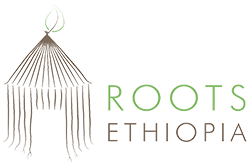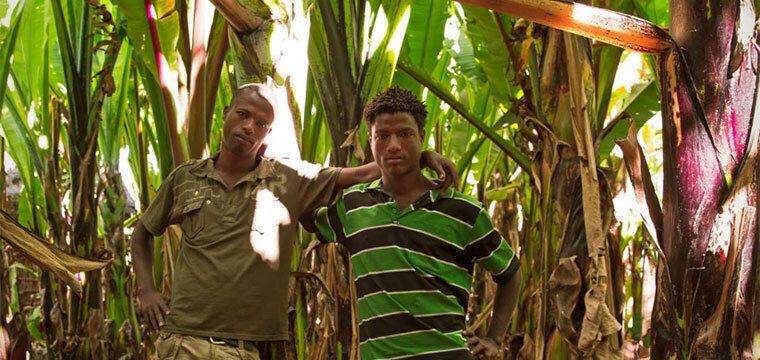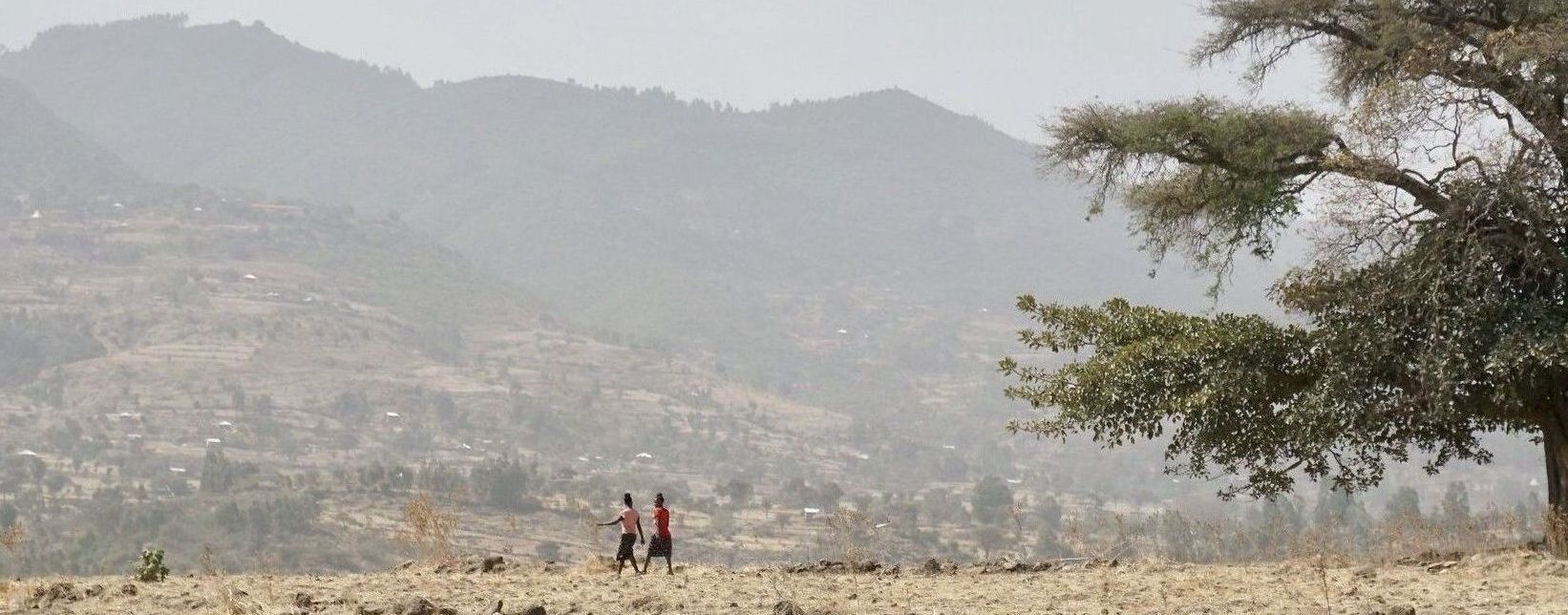July 2025
Enset: The Plant That Feeds Hope
Walk through any family farm in Central and Southern Ethiopia, and you’ll likely spot tall, broad leaves waving in the sun. That’s enset, a native plant with deep roots in both the soil and the lives of rural families.
Often called the “false banana,” enset isn’t a fruit at all. It’s a survival crop. And, during hard times, it’s a lifesaver.
Why Enset Matters — Especially Now
In the parts of Ethiopia where Roots Ethiopia works, rain-fed agriculture is the only option for families. There’s no irrigation on the small family farms that spill across the countryside. No backup. Everything depends on the timing and strength of the rains. The belg rains, a shorter season in early spring, and the meher rains, the main season from May to September, are the only two chances each year to grow food.
When the rains come too late, when there isn’t enough rain, or when there’s too much all at once, crops fail. It happens often. And when crops fail, families suffer. Food becomes scarce. Prices rise. Children eat less. Hunger creeps in. It’s a fragile system. Families pay the price for every shift in the weather.
This is where enset steps in.
A Resilient Crop for a Tough Climate
Enset grows year-round and thrives even in unpredictable weather. Its deep roots find hidden water during droughts. Its thick, waxy leaves protect it from drying out. And when families need it most, the underground stem, called a corm, becomes a reliable source of food.
For families facing hunger, enset isn’t just a crop. It’s security.
Food, Fiber, and So Much More
But enset doesn’t stop at providing a family needed food. Its fibrous leaves are used to make ropes, baskets, and even mattress stuffing. It’s no wonder local families call it the “tree of life.”
When food is scarce, enset gives. When income is needed, enset gives. When weather turns against farmers, enset gives.
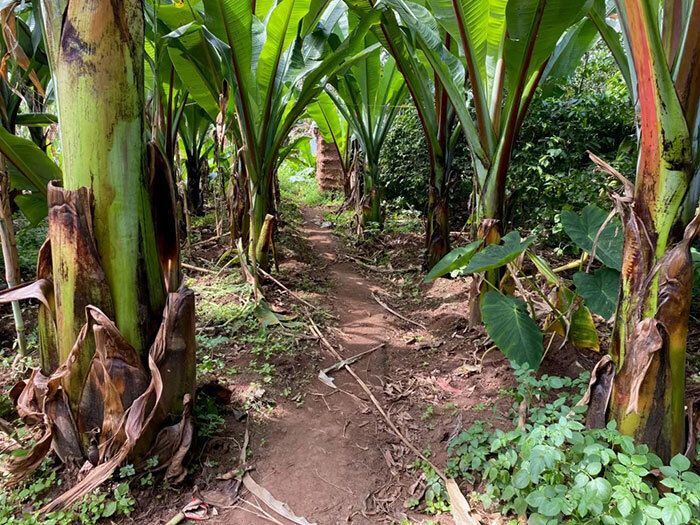
Beautiful enset garden
Enset Is More Than a Plant — It’s a Partner
At Roots Ethiopia, many of our team members grew up surrounded by enset. They’ve watched their families tend it, harvest it, and live with its quiet strength.
Families like Almaz’s, who prepares food from enset for her children and sells extra stalks at the market. For her, enset is both nourishment and income.
Rooted in Resilience
On small family farms, often less than one hectare, enset stands tall. It’s a symbol of what families can do with determination, knowledge, and the right resources.
And when you support Roots Ethiopia, you’re part of that story. Your loving support during times of hardship helps helps families survive the lean season.
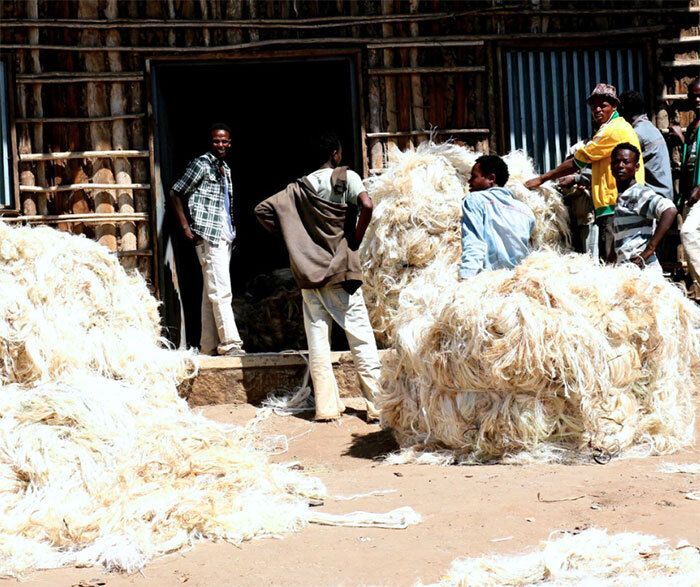
Enset fibers are used to make rope that is sold in the local market
Enset is a wonderful plant. It is a true gem. And it’s exactly what families need when food is scarce. When we look around at local family farms with an average size of less than one hectare, enset is a symbol of hope. It represents the power of resilience and community solidarity that is part of every day life in rural Ethiopia.
Most families in rural Ethiopia farm less than one hectare of land. It's not enough to grow what they’ll eat. That’s why plants like enset matter so much. A single garden must work hard across different seasons and shifting rains. Enset grows year-round and offers both food and materials, making it a smart and steady part of a small family farm.
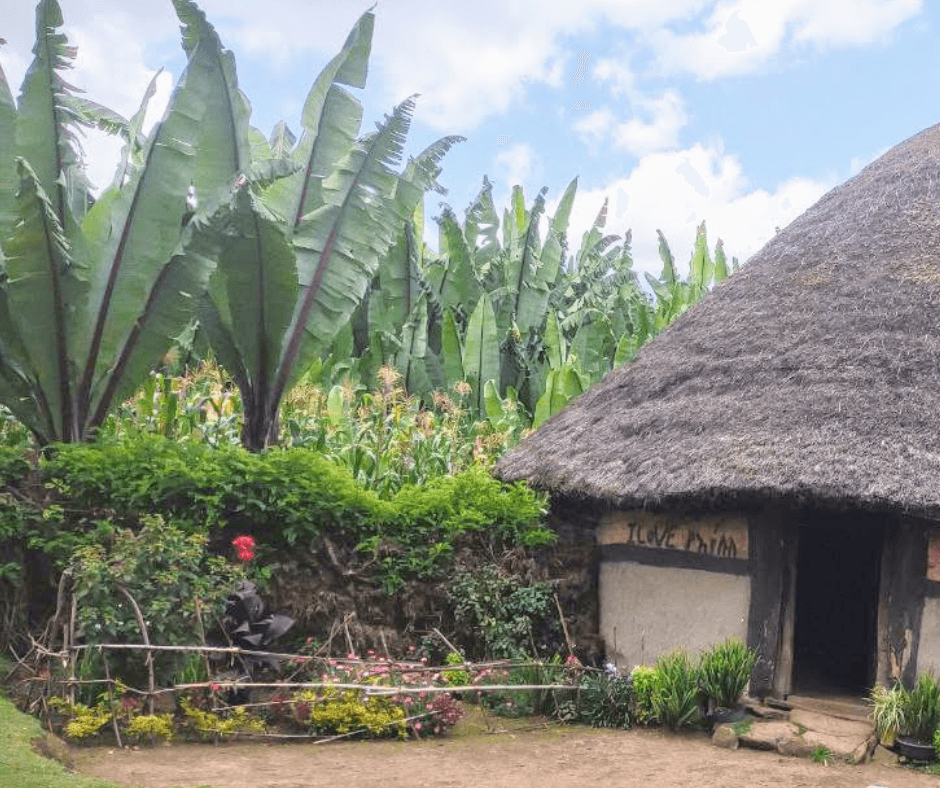
A traditional gojobet next to an enset garden on a small farm in Ethiopia, surrounded by lush green leaves
P.S. Enset reminds us that quiet strength can carry a family through the hardest seasons. Thank you for standing with families who are doing all they can.
